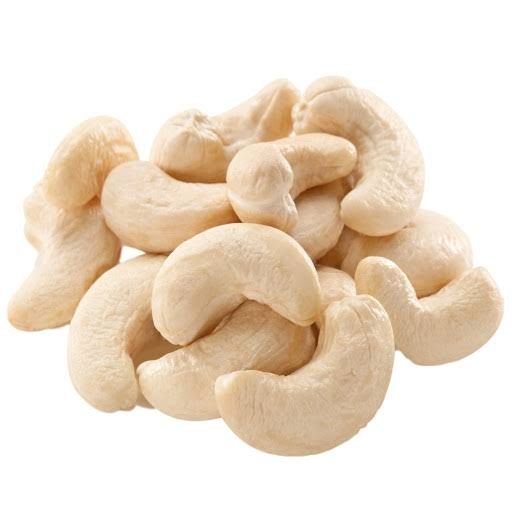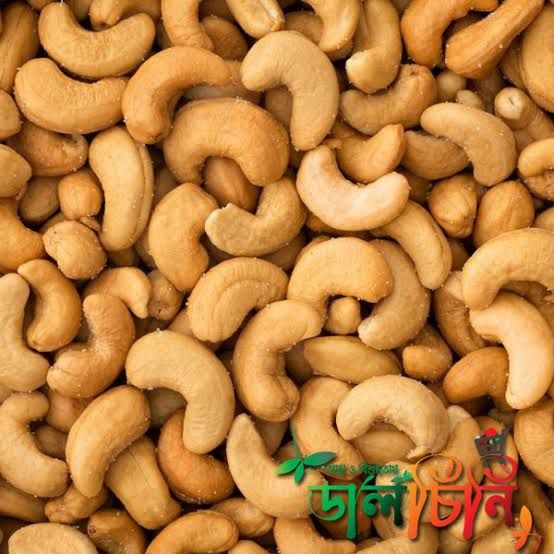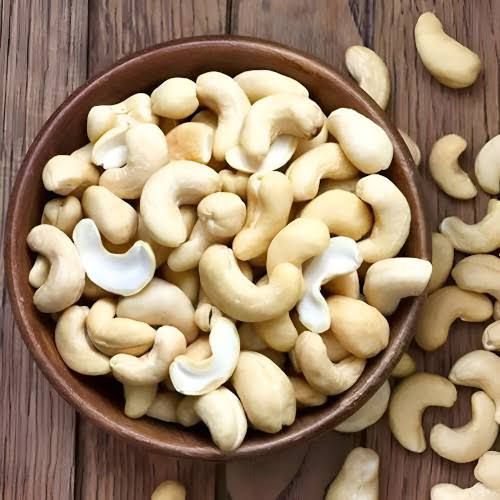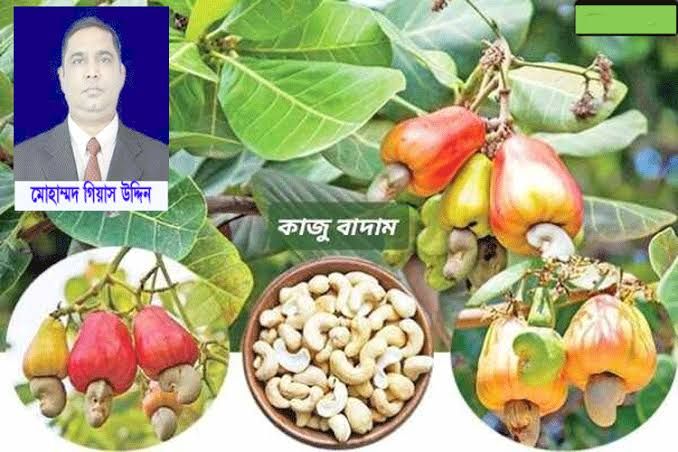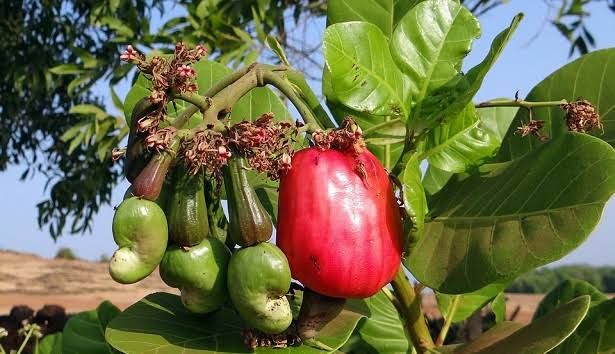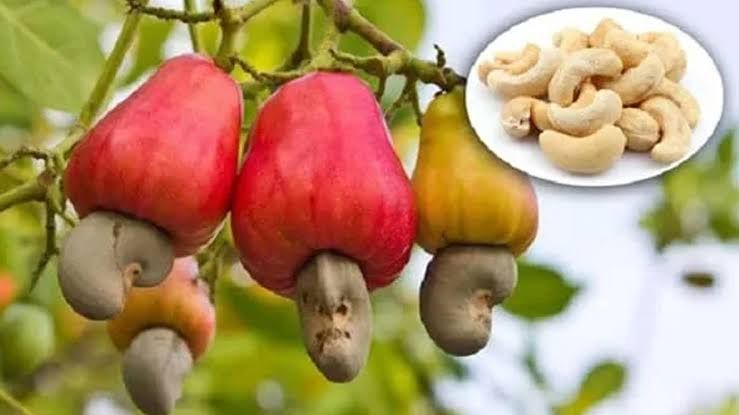
Bismillaher Rahmanir Rahim.
Assalamu Alaikum Wa Rahmatullahi Wa Barakatuhu
Dear Companions Today I want to share with you some words about the evils of killing foetuses.Welcom to this post and congratulations to all.
Cultivation of Cashew Nut
Cashew (Anacardium occidentale) is a tropical evergreen tree native to Brazil, now widely grown in tropical regions around the world, especially in India, Vietnam, Nigeria, and the Ivory Coast. The cashew tree is valued for its nuts, cashew apples, and even its wood. The tree thrives in warm climates with well-drained soils, making it an ideal crop for areas with a prolonged dry season. Below is a detailed look at the cultivation method for cashew nuts.
Climate Requirements
Cashew trees prefer a tropical climate with temperatures ranging between 24°C to 28°C. The trees require a minimum of six hours of sunlight daily and do not tolerate frost. Rainfall should be moderate, ideally between 600-1,500 mm per year. The best growth occurs in areas with a distinct dry season, which helps in the flowering and fruiting process.Soil Requirements
The ideal soil for cashew cultivation is sandy loam with good drainage. Cashew trees can grow in poor soils but do best in well-drained, slightly acidic to neutral soils with a pH range of 5.0 to 6.5. The soil should be rich in organic matter and free from waterlogging, as excessive moisture can lead to root rot and fungal diseases.Propagation
Cashew trees are primarily propagated through seeds or grafting. Seed propagation is the most common method, but for uniformity and better yield, grafting techniques such as air layering or cleft grafting are preferred. The seeds should be sown at the beginning of the rainy season to ensure sufficient moisture for germination. Seedlings typically take around three to four weeks to sprout.
Planting
The planting distance for cashew trees varies depending on the growth habit and soil fertility, but it is generally recommended to space the trees 7 to 9 meters apart. This spacing allows sufficient room for the tree's canopy to spread and for better air circulation, reducing the risk of disease. Before planting, pits measuring 60 cm x 60 cm x 60 cm are dug and filled with a mixture of soil, organic manure, and phosphate fertilizer.Watering and Fertilization
Cashew trees are drought-tolerant once established but benefit from regular watering during the initial stages. Watering should be reduced once the trees are mature, as excessive water can harm the plants. Fertilization is essential during the growing phase; a balanced fertilizer rich in nitrogen, phosphorus, and potassium is recommended. Organic compost or farmyard manure can also be applied to improve soil fertility.Pruning and Training
Pruning cashew trees helps shape the plant, remove dead branches, and improve air circulation. Regular pruning encourages better fruit production and reduces the risk of pest infestations. The main trunk should be allowed to grow up to about 1 meter in height before letting side branches develop.
Pest and Disease Management
Cashew trees are susceptible to pests like tea mosquito bugs, stem borers, and fruit flies, which can affect the yield. Common diseases include powdery mildew, anthracnose, and root rot. Regular monitoring, the use of organic pesticides, and maintaining proper hygiene in the plantation can help control these problems.Harvesting
Cashew nuts are ready for harvest when the cashew apples turn reddish or yellowish and fall to the ground. This typically occurs between February and May, depending on the location. The nuts are manually separated from the apple, dried under the sun for a few days, and then processed to remove the shell.
Nutritive Value of Cashew Nut
Cashew nuts are highly nutritious and are often considered a healthful snack due to their rich nutrient profile. They provide a variety of vitamins, minerals, and beneficial plant compounds, making them an excellent addition to a balanced diet.
- Macronutrients
Calories: Cashews are relatively high in calories, with around 553 calories per 100 grams. This makes them a good source of energy.
Proteins: They contain about 18.2 grams of protein per 100 grams, which is essential for muscle growth and tissue repair.
Fats: Cashews have around 44 grams of fat per 100 grams, mostly in the form of healthy monounsaturated and polyunsaturated fats that are good for heart health.
Carbohydrates: Cashews provide about 30 grams of carbohydrates per 100 grams, including 3.3 grams of dietary fiber. - Vitamins and Minerals
Vitamins: Cashew nuts are a good source of vitamin E, K, and B-complex vitamins (such as B1, B2, B3, B6, and folate), which are vital for various metabolic processes.
Minerals: They are rich in essential minerals like magnesium, phosphorus, zinc, iron, copper, and manganese, which play significant roles in bone health, immunity, and enzyme functions. - Antioxidants
Cashew nuts contain antioxidants like polyphenols and carotenoids, which help neutralize free radicals in the body. This property is beneficial in reducing inflammation and lowering the risk of chronic diseases.
Health Benefits
Heart Health: The healthy fats in cashews help lower LDL cholesterol and increase HDL cholesterol, improving heart health.
Bone Health: The high magnesium and calcium content supports bone strength and density.
Weight Management: Despite their calorie content, cashews can aid in weight management by promoting a feeling of fullness and boosting metabolism.
Diabetes Control: The low glycemic index of cashews makes them suitable for people with diabetes, as they do not cause rapid spikes in blood sugar levels.
How to Eat Cashew Nuts
Cashew nuts can be consumed in a variety of ways, making them a versatile ingredient in many cuisines. Here are some popular methods of incorporating cashew nuts into your diet:Raw or Roasted
Cashews can be eaten raw, but they are often roasted to enhance their flavor. Dry-roasting or oil-roasting gives the nuts a crunchy texture and a rich, nutty taste. You can add a pinch of salt or spices like black pepper, paprika, or chili powder for an extra kick.Cashew Butter
Cashew butter is a creamy, spreadable paste made from ground cashew nuts. It's a healthy alternative to peanut butter and can be used as a spread on bread, added to smoothies, or used as a dip for fruits and vegetables.Cashew Milk
Cashew milk is a plant-based milk alternative made by blending soaked cashew nuts with water. It has a creamy consistency and a mild nutty flavor, making it a great addition to coffee, smoothies, cereals, or as a base for dairy-free recipes.In Cooking and Baking
Cashews are commonly used in cooking and baking, adding flavor, texture, and creaminess to dishes. They can be ground into flour for gluten-free recipes, added to curries, stir-fries, salads, and desserts like cakes and cookies. Cashew nuts are also a key ingredient in vegan recipes, especially in making creamy sauces, cheeses, and desserts.Cashew Snacks
Cashew nuts can be enjoyed as a quick and healthy snack on their own or combined with other nuts, dried fruits, and seeds to make trail mix. They can also be coated in honey or chocolate for a sweet treat.Cashew in Asian Cuisine
Cashew nuts are widely used in Asian dishes, particularly in Indian, Thai, and Chinese cuisines. They are added to curries, rice dishes, and stir-fries to provide a crunchy texture and enhance the flavor.
source
Cashew nuts are not just delicious but also packed with nutrients that offer numerous health benefits. Cultivating cashew trees requires specific climatic and soil conditions, but with proper care and management, they can be a rewarding crop. Incorporating cashew nuts into your diet, whether as a snack or an ingredient in cooking, can contribute to overall well-being. Their versatility and nutritional value make them a valuable addition to a balanced diet, providing essential vitamins, minerals, and healthy fats
https://images.app.goo.gl/E6JXVBsU7KoWSTgq7
